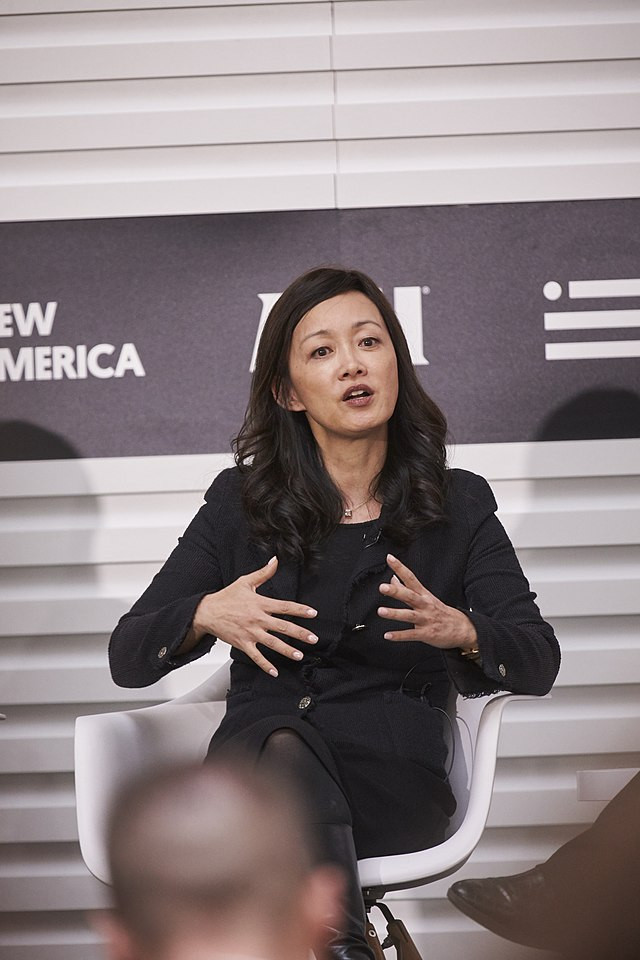Former CIA analyst Sue Mi Terry has been indicted by a New York grand jury on charges of secretly working as an agent for the South Korean government. The indictment, unsealed Tuesday, accuses Terry of accepting designer goods, lavish meals, and $37,000 in exchange for her services over nearly a decade.
Sue Mi Terry, an expert on North Korea who once served on the U.S. National Security Council, is alleged to have begun her clandestine activities in June 2013. According to the indictment, she met multiple times with an unnamed handler and provided valuable intelligence and facilitated access for South Korean officials to U.S. government counterparts. The indictment states, "At the direction of ROK Government officials, Terry advocated ROK policy positions, including in published articles and during media appearances, disclosed nonpublic U.S. Government information to ROK intelligence officers, and facilitated access for ROK Government officials to U.S. Government officials."
In exchange, South Korean officials allegedly provided Terry with luxury items such as a $3,450 Louis Vuitton handbag, a $2,845 Dolce & Gabbana coat, and dinners at Michelin-starred restaurants. Additionally, they reportedly funneled $37,000 into a "gift" account at the think tank where she worked.
The Council on Foreign Relations, where Terry was employed as a senior fellow, placed her on administrative leave immediately after learning of the indictment. "We take these allegations very seriously," spokesperson Iva Zorić told CNN.
The indictment portrays Terry as a valuable asset for South Korea, providing detailed information and advocating for their policies. One notable incident mentioned in the indictment involves Terry allegedly passing detailed handwritten notes from a confidential North Korea policy briefing with U.S. Secretary of State Antony Blinken to her handler.
South Korea's National Intelligence Service stated, "The intelligence authorities of South Korea and the United States are in close communication regarding the indictment related to the Foreign Agents Registration Act." Seoul's Ministry of Foreign Affairs did not immediately respond to requests for comment.
Under U.S. law, American citizens must register as foreign agents if they engage in activities for a foreign government. Terry's failure to do so forms the crux of the criminal charges against her.
Terry, born in Seoul and a naturalized U.S. citizen, began her career with the U.S. government in 2001. She served as a high-profile analyst on East Asian issues for the CIA until her resignation in 2008 due to a conflict of interest concerning her relationship with South Korea's National Intelligence Service. She later held the position of director for Japan, Korea, and Oceanic affairs at the National Security Council under Presidents George W. Bush and Barack Obama.
Her alleged activities as a foreign agent began two years after leaving government service and continued for nearly a decade. Despite FBI warnings in 2014 about potential covert payment offers from South Korean intelligence, Terry's involvement persisted.
Her lawyer, Lee Wolosky, has strongly denied the allegations, stating, "These allegations are unfounded and distort the work of a scholar and news analyst known for her independence and years of service to the United States. In fact, she was a harsh critic of the South Korean government during times this indictment alleges that she was acting on its behalf. Once the facts are made clear it will be evident the government made a significant mistake."
Terry's indictment also alleges that she published multiple opinion pieces at the behest of South Korean officials, including an article praising a summit between Presidents Joe Biden and Yoon Suk Yeol, for which she allegedly received $500.
The charges against Terry include failing to register under the Foreign Agents Registration Act and conspiring to violate that law. During a voluntary FBI interview in June 2023, she acknowledged being a "source" for South Korea's intelligence service.
South Korea remains a key U.S. ally in the Asia-Pacific region, but Terry's indictment underscores the complexities and challenges in maintaining transparency and trust between the two nations. This case is the latest in a series of espionage-related incidents that have tested the diplomatic relationship between the U.S. and its allies.






